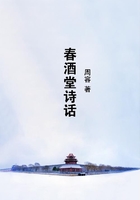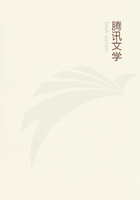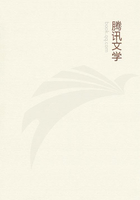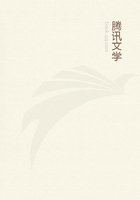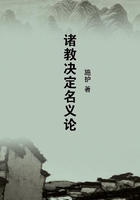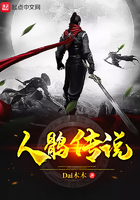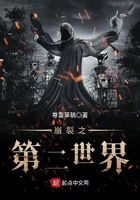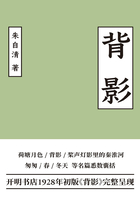Princes like Federigo of Urbino and Alfonso of Ferrara acquired a mastery of the subject compared to which the knowledge even of Maximilian I appears superficial.In Italy, earlier than elsewhere, there existed a comprehensive science and art of military affairs;here, for the first time, that impartial delight is taken in able generalship for its own sake, which might, indeed, be expected from the frequent change of party and from the wholly unsentimental mode of action of the Condottieri.During the Milano-Venetian war of 1451 and 1452, between Francesco Sforza and Jacopo Piccinino, the headquarters of the latter were attended by the scholar Gian Antonio Porcellio dei Pandoni, commissioned by Alfonso of Naples to write a report of the campaign.It is written, not in the purest, but in a fluent Latin, a little too much in the style of the humanistic bombast of the day, is modelled on Caesar's Commentaries, and interspersed with speeches, prodigies, and the like.Since for the past hundred years it had been seriously disputed whether Scipio Africanus or Hannibal was the greater, Piccinino through the whole book must needs be called Scipio and Sforza Hannibal.But something positive had to be reported too respecting the Milanese army; the sophist presented himself to Sforza, was led along the ranks, praised highly all that he saw, and promised to hand it down to posterity.Apart from him the Italian literature of the day is rich in descriptions of wars and strategic devices, written for the use of educated men in general as well as of specialists, while the contemporary narratives of northerners, such as the 'Burgundian War' by Diebold Schilling, still retain the shapelessness and matter-of-fact dryness of a mere chronicle.The greatest _dilettante _who has ever treated in that character of military affairs, Machiavelli, was then busy writing his 'Arte della Guerra.' But the development of the individual soldier found its most complete expression in those public and solemn conflicts between one or more pairs of combatants which were practiced long before the famous 'Challenge of Barletta' (1503).The victor was assured of the praises of poets and scholars, which were denied to the northern warrior.The result of these combats was no longer regarded as a Divine judgement, but as a triumph of personal merit, and to the minds of the spectators seemed to be both the decision of an exciting competition and a satisfaction for the honour of the army or the nation.
It is obvious that this purely rational treatment of warlike affairs allowed, under certain circumstances, of the worst atrocities, even in the absence of a strong political hatred, as, for instance, when the plunder of a city had been promised to the troops.After the forty days' devastation of Piacenza, which Sforza was compelled to permit to his soldiers (1477), the town long stood empty, and at last had to be peopled by force.Yet outrages like these were nothing compared with the misery which was afterwards brought upon Italy by foreign troops, and most of all by the Spaniards, in whom perhaps a touch of oriental blood, perhaps familiarity with the spectacles of the Inquisition, had unloosed the devilish element of human nature.After seeing them at work at Prato, Rome, and elsewhere, it is not easy to take any interest of the higher sort in Ferdinand the Catholic and Charles V who knew what these hordes were, and yet unchained them.The mass of documents which are gradually brought to light from the cabinets of these rulers will always remain an important source of historical information; but from such men no fruitful political conception can be looked for.
The Papacy The Papacy and the dominions of the Church are creations of so peculiar a kind that we have hitherto, in determining the general characteristics of Italian States, referred to them only occasionally.
The deliberate choice and adaptation of political] expedients, which gives so great an interest to the other States is what we find least of all at Rome, since here the spiritual power could constantly conceal or supply the defects of the temporal.And what fiery trials did this State undergo in the fourteenth and the beginning of the fifteenth century, when the Papacy was led captive to Avignon! All, at first, was thrown into confusion; but the Pope had money, troops, and a great statesman and general, the Spaniard Albornoz, who again brought the ecclesiastical State into complete subjection.The danger of a final dissolution was still greater at the time of the schism, when neither the Roman nor the French Pope was rich enough to reconquer the newly-lost State; but this was done under Martin V, after the unity of the Church was restored, and done again under Eugenius IV, when the same danger was renewed.But the ecclesiastical State was and remained a thorough anomaly among the powers of Italy; in and near Rome itself, the Papacy was defied by the great families of the Colonna, Orsini, Savelli and Anguillara; in Umbria, in the Marches, and in Romagna, those civic republics had almost ceased to exist, for whose devotion the Papacy had shown so little gratitude; their place had been taken by a crowd of princely dynasties, great or small, whose loyalty and obedience signified little.As self-dependent powers, standing on their own merits, they have an interest of their own; and from this point of view the most important of them have already been discussed.
Nevertheless, a few general remarks on the Papacy can hardly be dispensed with.New and strange perils and trials came upon it in the course of the fifteenth century, as the political spirit of the nation began to lay hold upon it on various sides, and to draw it within the sphere of its action.The least of these dangers came from the populace or from abroad; the most serious had their ground in the characters of the Popes themselves.

